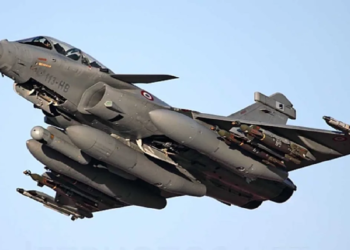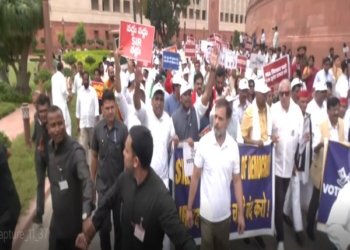Ousted Syrian leader Bashar Assad said Monday he wanted to remain in the country after rebels seized the capital, but Russian forces evacuated him from his base in western Syria when it came under attack.
These were Assad’s first public comments since he was ousted by rebel groups just a week ago. This attack shook the country’s alliances and created an atmosphere of celebration in the country which has been struggling with civil war for a long time. Meanwhile, a spokesman for the new transitional government told The Associated Press that the new Syria would be inclusive and open to the world.
Assad said on Facebook that he left Damascus on the morning of December 8, hours after rebels attacked the capital. He said he left in coordination with Russian allies for their Hmeimim air base in the coastal province of Latakia, where he planned to continue fighting.
But when the Russian base came under drone attack, he said the Russians decided to take him to Russia that very night. “During these events I never thought about abdicating or seeking refuge, nor did any person or party make any such proposal,” Assad said in the English text of his statement. “The only course of action was to continue the fight against the terrorist attack.”
In Damascus, residents rejected Assad’s comments and some said he had abandoned the Syrian people long ago. “Will he run away from us? He still won’t run away from God,” said one resident, Moataz al-Ahmad, as children stepped over a fallen statue of Assad’s father Hafez, who overthrew the family during its half-century rule. Was started.
A spokesman for the transitional government’s political department said in an interview on Monday that “the Assad regime is finished and there can be no return” and that Russia should “reconsider its presence and its interests in Syrian territory”. Spokesman Obeid Arnaut told the AP that Syria has entered a new phase that will be open to the world, and the new government is trying to build good relations with its neighbors and beyond.
He called on the US and other countries to reconsider designating Hayat Tahrir al-Sham – the main rebel group and former al-Qaeda affiliate – as a terrorist organization, calling it “not accurate and accurate”.
The US has already said its officials are in direct contact with the group. Syria is home to many ethnic and religious communities, often pitted against each other because of Assad’s state and years of war. Many of them fear the possibility that Sunni Islamist extremists will seize power. The new leadership is also in touch with the US to return American citizen Travis Timerman, who was one of those involved in terrorist attacks in Syria.
Arnaut said prisoners were released from government detention centers after the fall of Assad. “There are political contacts at the highest levels, which benefit the Syrian people and which strengthen the current administration,” he said. Asked whether the new government’s security forces would cooperate with the US to fight the remaining militants with the Islamic State group, Arnaut said Syrian factions have ousted and rejected IS and the group is No longer has a significant presence in the country.
US-backed, Kurdish-led forces in north-eastern Syria have been America’s main ally in fighting IS and oversee detention centers holding IS militants. However, the future of the Kurds and the semi-autonomous region they control remains unclear in the country’s new post-Assad regime. In some areas there have been clashes over territory between Kurdish forces and armed groups seeking to overthrow Assad.
Arnaut said the Kurds are part of the Syrian people and their rights will be protected. However, he said that the new government would not accept that any part of Syria was outside of Damascus’ control. “The Kurds are one of the components of the Syrian people and we are very keen that the rights of this group be protected,” he said. “The social fabric in Syria is a source of strength, not weakness. But we reaffirm that we do not want to isolate any part of Syria.”
The UN envoy for Syria, Geir Pedersen, said on Monday he met with HTS leader Ahmed al-Sharaa and was briefed on the challenges and priorities of the Syrian people. Pedersen has called for the lifting of international sanctions on Syria to allow rapid reconstruction.
Meanwhile, a Britain-based war monitor said Israeli airstrikes on Monday morning targeted missile warehouses on the Syrian coast, calling it “the most violent attack” in that part of Syria since 2012. Israel has been carrying out hundreds of airstrikes on military sites in Syria following the dramatic fall of Assad’s regime, destroying air defenses and much of the former Syrian army’s arsenal.









